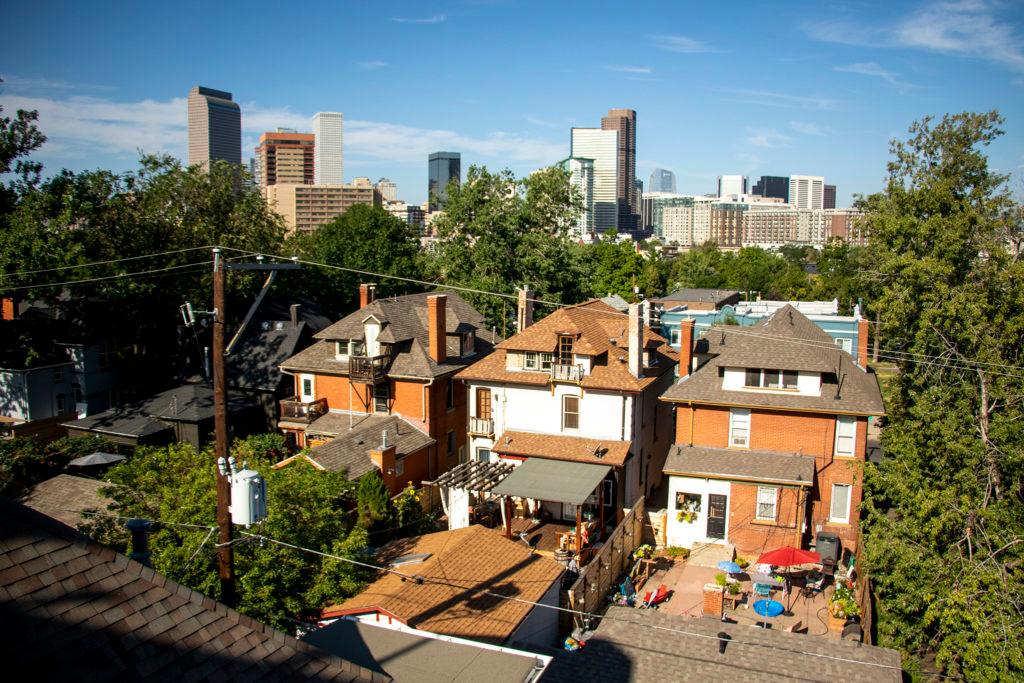
A Denver down payment assistance program has helped over 100 households purchase homes in redlined communities since its launch a year and a half ago, according to data provided to CPR News this month. But with its funding fully committed for now, it’s too late for new applicants who might want to use the program.
The metroDPA Social Equity Program began in April, 2022. Set up for families living in specific areas in Denver, with good credit and incomes of no more than $188,250, it offered between $15,000 and $25,000 to help with the initial costs of getting into a home.
The program’s goal was to assist homebuyers in communities that had been redlined in the past, including Elyria Swansea, Globeville, Whittier, Five Points and West Barnum among others.
Redlining is generally defined as a discriminatory practice in which services — often opportunities to borrow money — are kept from those who live in low-income communities considered hazardous to investment, making the securing of mortgages and insurance policies in those areas more difficult.
Due to high demand, metroDPA’s Social Equity Program is no longer taking applications in Denver. But it’s possible it will resume in the future. The website says: “Please check back in January 2024 to see if the suspension of new applications has been lifted.”
The social equity program was aimed at “residents and direct descendants of people who lived in a Denver neighborhood that was redlined between 1938 and 2000,” according to a press release from April 2022 announcing it.
“Far too many households, historically those in communities of color, have been excluded from the American Dream and the wealth-building it offers for these families,” then mayor Michael Hancock was quoted in the release. “This is a step in correcting that.”
Participants also had to have a credit score about 640 and qualify for a 30-year fixed rate home loan.
The program is administered by the city’s Department of Housing Stability (HOST), which describes itself as “the department that invests in resources, creates policy, and partners to provide housing stability, resolve episodes of homelessness, and create housing opportunities.”
According to Derek A. Woodbury, the marketing and communications manager for HOST, as of September first, “In total, 117 households have closed on homes, having received $2,715,000 in total funds.” Of those, nearly nine in ten participants are first-time home buyers and just over half (52.8) are households led by women, Woodbury stated in an email.
The vast majority of those new owners — 92 percent — are people of color, a quarter of them Black.
However, the program was only able to reach the finish line and close on a home with less than one in ten applicants. Nearly a thousand people applied, 90 percent of whom were people of color, one third of them Black, Woodbury said in the email.
It’s too late to for anyone who hasn’t already applied to seek funding through this program; it stopped accepting applications about six weeks ago: “The number of applications received to date has resulted in grant commitments that exceed our currently available funds, and there are currently enough funds to only support applications received through July 21, 2023.”
Applications that came in after July 21 have been placed on a waitlist.








